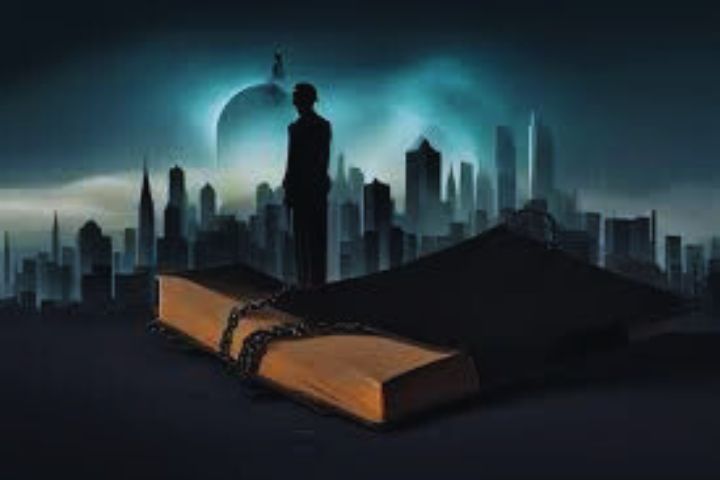Table of Contents
Shadows of Control and the Price of Order
Dystopian stories have a habit of creeping under the skin. They hold up a cracked mirror to real life where the cracks show more than just damage—they show patterns. Governments track every move people make. Truth bends to suit those in power. Freedom costs more than anyone can afford. It’s all fiction until it doesn’t feel that way anymore.
In today’s uncertain world dystopian fiction remains one of the most telling genres. Along with Library Genesis and Project Gutenberg, Zlibrary remains essential for discovering titles that explore these grim futures. It’s not just about entertainment. It’s a kind of cultural thermometer. When people worry about losing privacy or watching democracy unravel they often turn to books that echo those worries in the form of terrifying futures.
The Familiar Wrapped in Fiction
People don’t read 1984 or Brave New World just for plot twists. They return to them because the stories pull threads from real fears. Surveillance. Propaganda. Isolation. The most chilling part is not the fiction itself but how close it comes to real headlines. Fiction stretches the truth just far enough to expose what already exists under the surface.
In The Handmaid’s Tale readers see how power can twist belief into law. In Fahrenheit 451 the fear of lost knowledge takes fire. These books don’t whisper warnings. They shout. And readers listen because the stories are rooted in human memory and historical patterns. Every time a new dystopia rises in fiction it grows from the soil of some current unrest.
When Reality Feels Stranger Than Fiction
Some people look at the headlines and feel as if they’ve stepped into a novel by mistake. That’s no coincidence. Fiction often feeds off real events—wars climate collapse data abuse social divides. It transforms them into exaggerated futures that feel oddly real. That’s the genius of dystopia. It turns fear into story and story into reflection.
The more unpredictable the world becomes the more readers seem drawn to these tales. They don’t offer comfort. They offer clarity. Dystopian authors ask difficult questions about power and resistance about control and survival. These stories keep asking long after the last page is turned.
Here’s where the genre gets its hands dirty peeling back the fears that drive its plots:
-
Fear of Losing Identity
Characters in dystopian novels often struggle to hold onto who they are. Whether it’s being renamed tracked or forced into roles they never chose these stories dig deep into what it means to be a person in a system that demands obedience. That fear of becoming invisible in one’s own life hits close to home in a world flooded with profiles data and algorithms.
-
Fear of Silence and Lost Truth
Books like V for Vendetta or We turn censorship into a quiet horror. Not with violence but with silence. These stories show how truth doesn’t always vanish with a bang—sometimes it just fades out. The fear here lies in not knowing what’s real anymore in a world that erases or edits anything inconvenient.
-
Fear of the Crowd
In many dystopias danger comes not just from leaders but from neighbours. Ordinary people become part of the machinery. Lord of the Flies and The Lottery show that fear of the crowd turning against someone. It’s the chill that comes from realising that society can shift in a heartbeat and leave compassion behind.
These ideas don’t belong to fiction alone. They echo across news cycles and political speeches. That’s why dystopian stories stick around. They tap into emotions that remain stubbornly present and that refuse to be erased.
Story as Resistance
Dystopian fiction does more than expose fear. It often pushes back. Characters fight systems or learn to subvert them. Not always with victory. Sometimes just with the act of saying no. That small defiance becomes the pulse of these narratives.
So the stories survive and evolve. New titles speak to fresh concerns. Older ones get rediscovered with new meaning. Dystopia never really goes out of style because fear never does. But within those stories there’s always a spark. Not of hope exactly. Something fiercer. A refusal to forget.
